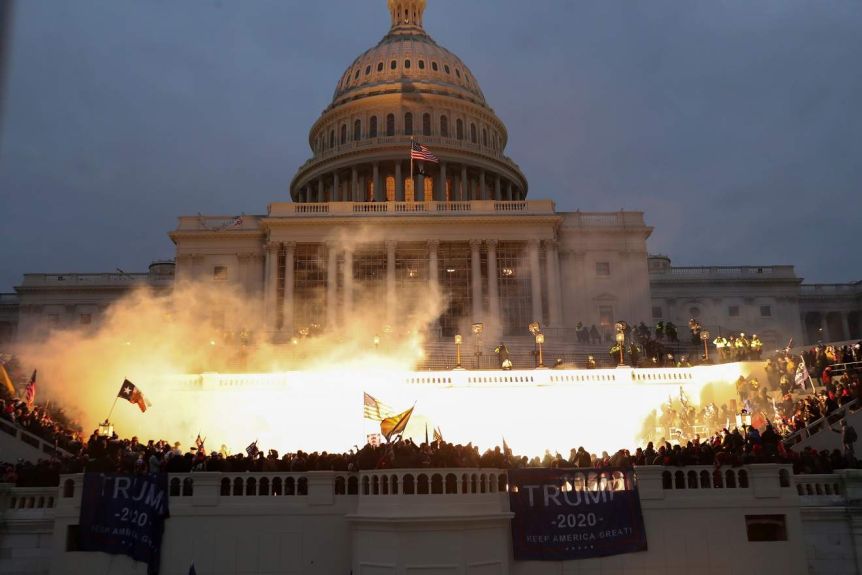Riot leaves four dead, widespread damage throughout the Capitol, and the question of how the federal government is covered in the event of attempted insurrection.
The fracas resulted in more than 50 arrests, four deaths and innumerable injuries as rioters left a trail of destruction throughout the seat of U.S. democracy.
Americans watched in astonishment yesterday (Jan. 6, 2021) as a violent mob broke through barricades and lines of police to overrun the U.S. Capitol Building in Washington, D.C., in an attempt to prevent Congress from conducting the ceremonial counting of Electoral College votes.
The disorderly mob left a trail of destruction throughout the Capitol Building. The riot left four dead, at least 14 police injured and resulted in more than 50 arrests.
Insurance industry leaders were quick to condemn the violence.
“We are in the business of protecting American families, businesses, individuals, communities, and the larger economy,” David A. Sampson, president and CEO of the American Property Casualty Insurance Association, said in a press release. “The actions taking place in Washington, D.C., today threaten the very pillars of our country.”
Following a four-hour lockdown, the joint session of Congress resumed and certified the election results.
“The top priority of independent insurance agents and brokers is and has always been keeping people and property safe and protected. Yesterday’s violence at the U.S. Capitol was appalling and inexcusable,” Bob Rusbuldt, Independent Insurance Agents & Brokers of America, Inc. (The Big “I”) president & CEO, said in a press release. “The Big ‘I’ strongly condemns those who endangered lives and desecrated this powerful symbol of our democracy. We will continue to advocate for safety and security for all Americans and for adhering to the United States Constitution, as our country moves forward after this disturbing incident.”
Noting all Americans have a responsibility to speak out against “the violence and display of demagoguery” yesterday, Evan G. Greenberg, chairman and CEO of Chubb, said in a statement: “This is not who we are as a nation, and our democracy must be protected. Whether one likes the results of our election or not, the citizens of our country have spoken. Our election process as reaffirmed by our courts and government agencies was fair and lawful. We look to all of our elected leaders from both parties to set an example by their respect and active support for the orderly transfer of power and their condemnation of false claims of election fraud. The confirmation of the electoral results last night by Congress was a powerful affirmation of our democracy. We should all hope for a new era of respect and decency as we meet the many common challenges facing our nation.”
Is the Fed covered for this?
While the dust is still settling and no estimates on the cost from the riot have been released, it is important to note that the U.S. government is self-insured due to the enormity of the costs involved if it were to work through regular markets, according to the Insurance Information Institute (Triple-I).
From a liability perspective, it is likely the federal Tort Claim Act, which says one cannot sue a government entity without its express permission, should protect the federal government from any lawsuits stemming from the estates of those who died during the riot, according to the Triple-I.
“That said, there could be an issue with the fact the government knew about the demonstration. So they should have been better prepared to remain in order so that this would never cross that line,” Loretta L. Worters, vice president of media relations for Triple-I, explained.
She noted the legal question now becomes: Was the government’s failure to maintain order and safety palpably unreasonable?









